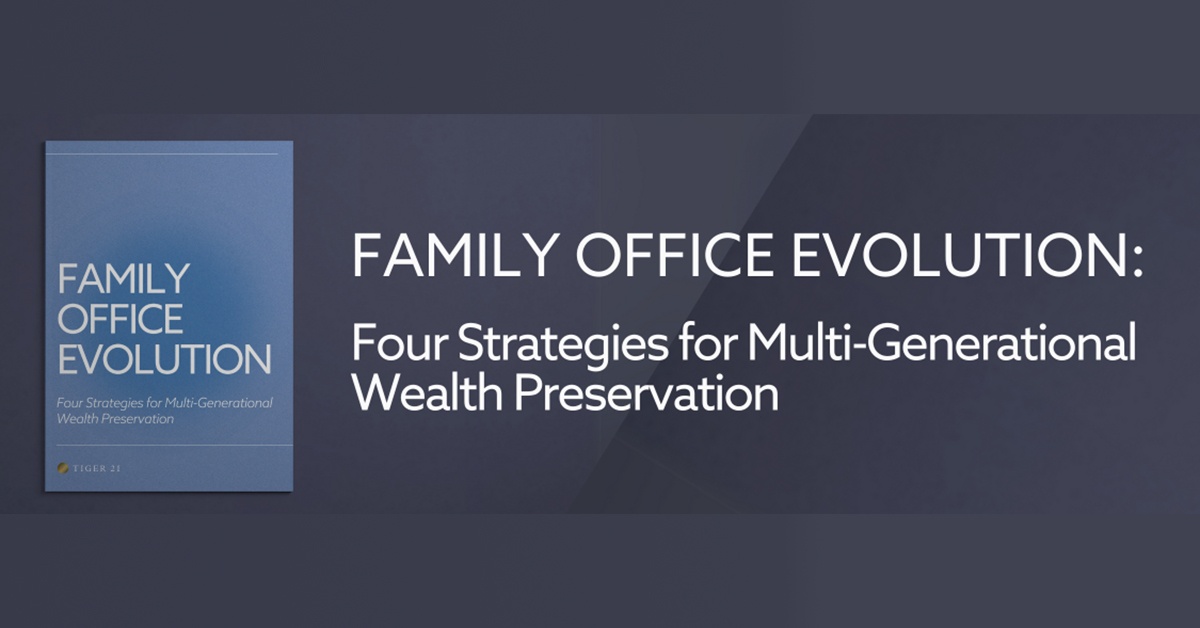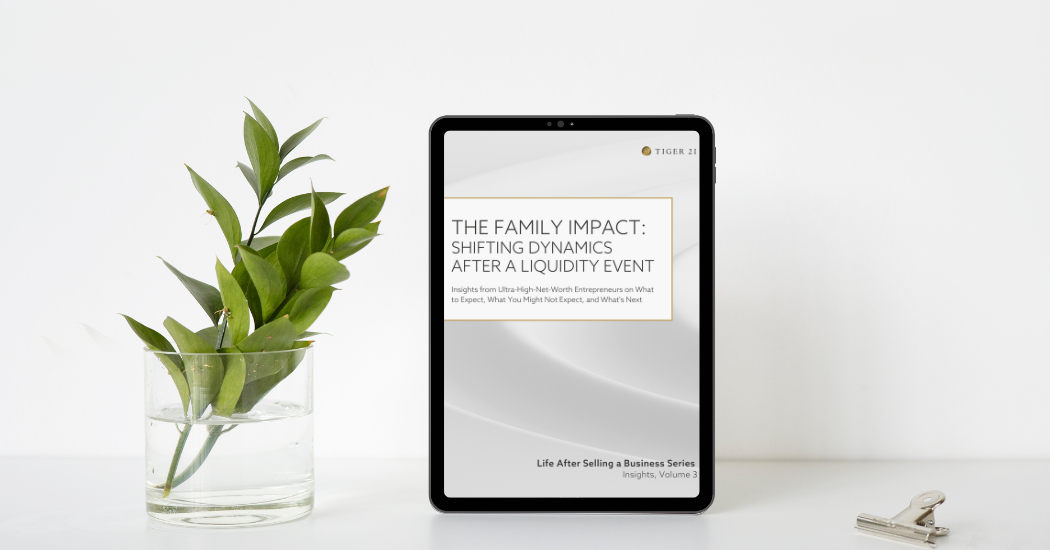ADDRESSING THE 4 BIGGEST WORRIES OF THE WEALTHY

No matter how high your net worth, wealth comes with its own set of issues. According to a study at Boston College’s Center for Wealth and Philanthropy, significant wealth brings with it worries about family, relationships, and even concerns about the wealth itself. The study, which surveyed more than 160 families, most of whom had $25 million or more, found that respondents:
‚Ä¢ Felt they lost the right to complain about anything because they didn’t want to sound ungrateful.‚Ä¢ Worried that their children would grow up to be spoiled or to resent them for not leaving them a sufficient inheritance.‚Ä¢ Noticed that outside relationships were affected by their wealth-many wondered if friends would still like them if they didn’t have that great vacation house or boat.‚Ä¢ Were constantly asked for things like a loan or a charitable donation.‚Ä¢ Still didn’t feel totally financially secure.
To get a read on the best ways to manage these anxieties, we spoke to some highly-regarded experts:
1. Are my kids going to be spoiled?
Flying private, staying at the best hotels, affording what you want are all perks of the wealth you’ve worked so hard to amass, but how do you raise kids who don’t take money (or hard work) for granted?Moira Somers, Ph.D., a Winnipeg-based neuropsychologist with a specialty in financial psychology who consults all over North America, says raising unspoiled kids starts with the parents. “Ask yourself, ‘What matters to me? What are the values you want your family to have?’ Whatever else you do, do not let your money give your kids a free pass on struggle,” Dr. Somers says. “If they screw up, don’t let your money free them from the logical consequences of what they’ve done. Just because they never have to have summer jobs, doesn’t mean that’s a good idea. Hard work and struggle are what mature us.”
Barbara Waxman, founder of The Odyssey Group, a California-based coaching practice specializing in midlife and older clients, agrees. “If you ask most people what their happiest times are, it’s when they were starting out and they were struggling to figure it out,” she says. “If you give your children everything, you are actually robbing them of the ability to have those kinds of moments. It’s not only not about spoiling, it’s about how do you enable your kids to truly be happy on their own merit?”
2. Am I going to seem ungrateful?
If you’re fortunate enough to have great wealth, it doesn’t exempt you from problems. Yet many people report a reluctance to voice these issues aloud for fear of being seen as an ungrateful whiner. You may feel you have no right to complain about anything.”This is real for many people,” says Dr. Somers. “If you just lost your vacation property in a flood, that’s still a loss. It’s a loss of memories, of all the work that went into it, and a financial loss.” Allow yourself to talk about your loss with a trusted friend or advisor and remember to also count your blessings.
In her book Uneasy Street: The Anxieties of Affluence, sociologist Rachel Sherman interviewed 50 affluent families in New York City. Sherman says many people she interviewed feared being judged as “entitled,” but they considered themselves to be “normal” people who work hard and don’t spend excessively. Still, “they take the tags off new clothing or the price tag off the $6 bread so the nanny doesn’t see how much things cost,” Sherman says. “There’s a hiding it from others because of lack of trust, sense of shame, vulnerability, a fear they’ll be judged.”
Dr. Somers has one word for dealing with the bind that Sherman describes: “‘Intentionality.’ Acknowledging how much you have and that you are committed to making a difference seems to be what leads to really healthy families,” she says. “You have to spend time thinking about, ‘How do we make use of all the capital that our family has-our talents, our passions, our other relationships?'”
3. Is everyone going to ask me for money/will I get sued?
If you have significant resources, people may not hesitate to ask you to share them. They may ask for loans, charitable donations or just expect you to pick up the tab every time you go out for dinner.”This is a realistic concern,” says Loren Soeiro, Ph.D., a Manhattan therapist who specializes in helping the wealthy to find fulfillment in their relationships and work. “Great wealth puts unspoken pressures on people–it may feel like there’s a target on your back, that people want something from you, and that you are always wondering how your wealth affects the way you are perceived.”
“I hear from people all the time who say, ‘It’s hard to say no when I have so much,'” Waxman says, but adds it may be the wrong way to look at giving money. “If you’re clear about what you are committed to and what causes you’re most passionate about, then you can always give a powerful ‘yes’ to those charities and organizations that you care about,” Waxman says. “You can say, ‘I am committed to X causes.’ By sharing what you are committed to, people will respect it when you say no.”Dr. Soeiro agrees, adding, “You’ll feel better in the long run if you’re certain what you care about, and use your wealth to support those values.”
As for lawsuits, the more money you have, the greater the chance that someone will try to sue you for your assets. But insurance can offer some protections and may cost you very little per year. According to experts, a lawyer who specializes in asset protection is the best place to start-he or she will be able to assess whether your particular situation makes you a likely lawsuit target.
4. I won’t have enough money to retire.
According to research company the Spectrem Group, 30 percent of millionaires worry that they might not be able to retire when they want. If this is a worry, ask yourself two questions: “What do I want to experience in retirement? What would be the evidence that I lost perspective on this issue?” Work through these questions with a trusted adviser or peer, Dr. Somers says, adding, “This is often about some unresolved existential issue and it may really be that you don’t know how to do anything other than work.”Many facing retirement worry that they’ve worked so hard to achieve success that they’re not sure what their purpose will be in retirement.
“Don’t get stuck on purpose,” Waxman advises. “People get trapped around the fear of not knowing what to do next. Their money is the ‘what’ of their lives, but they haven’t spent time figuring out the ‘why.'” Devote some attention to contemplating your passions. She suggests making a list of the highlights of your life. What do they have in common? You may find your passion is saving the environment or helping children or combatting disease. Once you identify it, you can put together steps to help you achieve impact within that sphere.
There are two ways to look at this, says Waxman: “Big P purpose,” which asks, “What am I willing to turn my life upside down for?” And “Little P purpose,” which asks, “What is something I can do today to get one step closer to connecting to what I care about?”Adds Dr. Soeiro, “For many people, money becomes part of their identity. It’s very difficult to imagine what life would be like, or who you would be, without it. I would say that networks like TIGER 21 exist, in part, so that people can connect more openly with each other without experiencing unspoken judgments.”
About TIGER 21
TIGER 21 is an exclusive global community of ultra-high-net-worth entrepreneurs, investors, and executives.
Explore the TIGER 21 Member ExperienceMember Insight Reports










